Share
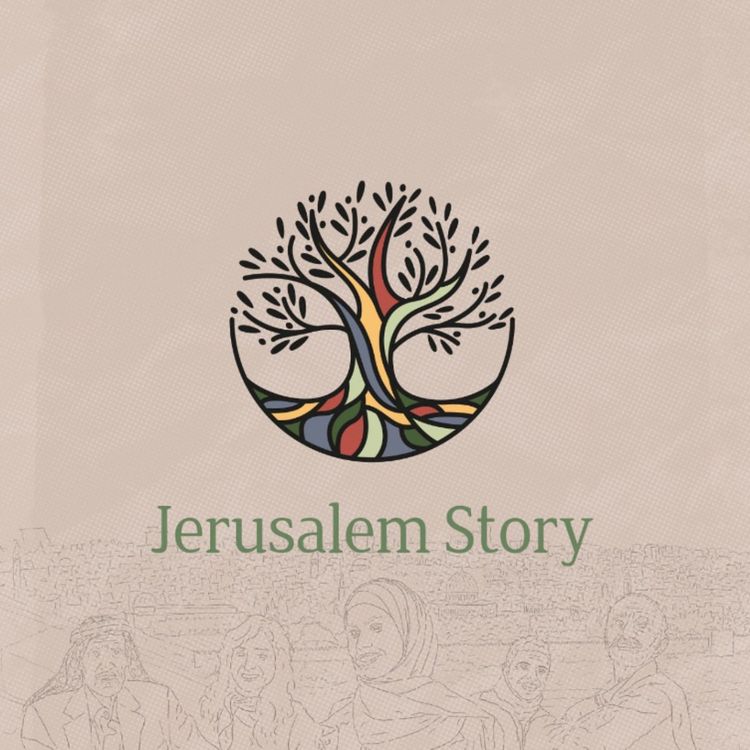
Jerusalem Unplugged
Jerusalem Story with Kate Rouhana
In this episode I have interviewed Kate Rouhana, Founder and Director of Jerusalem Story. As we unpacked the mission and structure of the website, we also delved into some of the stories told by the contributors of the website. Jerusalem Story aims to tell the story of a unique city through a new lens—that of the city’s large and diverse indigenous Palestinian community. This community has deep historic roots in Jerusalem and holds the strongest attachment to and love for their city. Yet, they have been subjected to unrelenting efforts to erase their presence in, and potential claim to, the city—past, present, and future—in the service of cementing Israel’s imperative of claiming sole sovereignty in perpetuity over a “united Jewish Jerusalem.” This effort, targeted through an overriding demographic imperative to maintain a Jewish majority to ensure control over the city, started decades ago and has taken myriad highly destructive forms, continuing to the present day, as is openly acknowledged by Israeli officials and decision-makers, and as the website and many other sources amply document.
More episodes
View all episodes
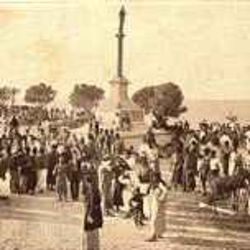
128. Palestine's Christians and the Nationalist Cause with Erik Freas
01:09:26||Season 6, Ep. 128In this episode I have interviewed Erik Freas that recently has edited a volume published by Routledge looking at Palestinian Christians and the nationalist cause through the late Ottoman and Mandatory periods. This book provides an historical overview of Palestine's Christian communities and their role in the Palestinian nationalist movement during the late Ottoman and British mandatory periods. More than being a history of Palestine's Christian Arabs, the book focuses on Palestine's Christians during the formative period of Palestinian Arab national identity, attentive to the broader topic of the relationship between nationalism and religion--in this case, between Arab identity and Islam. Whereas until recently historians have tended to assume that national and religious identities are distinct and mostly mutually exclusive things, more recent scholarship has addressed the fact that often there exists considerable overlap between the two, though it should be noted, often in ways that are not by any means inherently exclusive of those not belonging to the majority faith, as is the case here.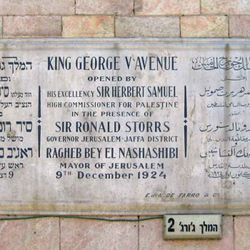
127. Ronald Storrs, the man and Jerusalem with Christopher Burnham
53:27||Season 6, Ep. 127Today I had the pleasure to talk to Christopher Burhnham who recently published Sir Ronald Storrs Personality and Policy in Mandate Palestine, 1917-1926 with Routledge. While some may say that we already know enough on Storrs, the reality is that his legacy in Jerusalem is not only fully understood and neglected, but given the lengthy rulership, we still have to uncover more.It builds upon Edward Said’s work on the Orientalist ‘determining imprint’ by arguing that Storrs took a deeply personal approach to governing the city; one determined by his upbringing, his education in the English private school system and his service as a British official in Colonial Egypt. Burnham recognises the influence of these experiences on Storrs’ perceptions of and attitudes towards Jerusalem, identifying how these formative years manifested themselves on the city and in the Governor’s interactions with Jerusalemites of all backgrounds and religious beliefs. It also highlights the restrictions placed on Storrs’ approach by his British superiors, Palestinians and the Zionist movement, alongside the limitations imposed by his own attitudes and worldview. Placing Storrs’ personality at the centre of discussion on early Mandate Jerusalem exposes a nuanced and complex picture of how personality and politics collided to influence its everyday life and built environment.
126. Christian Zionism and the Israel Lobby A Conversation with Awad Halabi and Ilan Pappe
48:24||Season 6, Ep. 126Today it's with great pleasure that I recast and interview that took place on October 2024 between Hawad Halabi and Ilan Pappe, both friends and guests of Jerusalem Unplugged. Ilan Pappe discussed his latest publication Lobbying for Zionism on Both Sides of the Atlantic.A special thanks goes to the Friends of Sabeel North American as they allowed me to republish the interview and also the Palestinian Christian Alliance for Peace.The full conversation, with more comments and questions from the audience can be found on Youtube.https://www.youtube.com/watch?v=ODub0s-oMLQ
125. Israel and Turkey with Howard Eissenstat
53:11||Season 6, Ep. 125In this first episode of the new year, I had the opportunity and pleasure to talk to Howard Eissenstat who currently is is an Laurentian Associate Professor of Middle East history and History Department Chair at St. Lawrence University and non-resident scholar at the Middle East Institute in Washington. With Howard we first looked at the legacy of President Carter in the Middle East and from there we unpacked the long and complex relations between Israel and Turkey. Lastly, as we are approaching the transition from the Biden to the Trump administrations we tried to understand what this means for Turkey.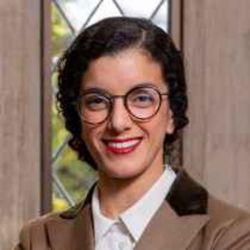
124. Palestinian Politics with Dana El Kurd
53:08||Season 6, Ep. 124There is so much talking about Israel, the war on Gaza, Lebanon and now Syria, but what about Palestinian politics? In this episode I talked to Dana El Kurd a Palestinian political scientist with a deep knowledge and understanding of Palestinian politics. We started our conversation discussing her book published in 2020 Polarized and Demobilized: Legacies of Authoritarianism in Palestine, from there we move to talk about the incoming Trump administration, the role of Saudi Arabia but more importantly how politics is experienced and imagined in Palestine.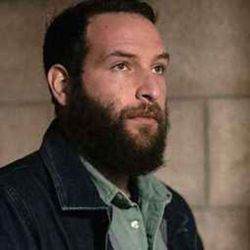
123. Peace Now with Mauricio Lapchik
01:01:02||Season 6, Ep. 123In the first episode of season 6 I have interviewed Maurcio Lapchik, the Director of External Relations at Peace Now (Shalom Akshav), the largest and longest-standing Israeli movement advocating for peace through public pressure. While we briefly introduced Peace Now to those who don't know yet this organization, we then discussed the current standing of the peace camp in Israel. While the picture is rather grim, Mauricio keeps hoping for the best.
122. Daybreak in Gaza with Mahmoud Muna and Matthew Teller
01:19:17||Season 5, Ep. 122This is Gaza – a place of humanity and creativity, rich in culture and industry. A place now utterly devastated, its entire population displaced by a seemingly endless onslaught, its heritage destroyed.Daybreak in Gaza is a record of an extraordinary place and people, and of a culture preserved by the people themselves. Vignettes of artists, acrobats, doctors, students, shopkeepers and teachers offer stories of love, life, loss and survival. They display the wealth of Gaza’s cultural landscape and the breadth of its history.Daybreak in Gaza humanises the people dismissed as statistics. It stands as a mark of resistance to the destruction and as a testament to the people of Gaza.
121. American Jews and the Movement for Justice in Palestine with Oren Kroll-Zeldin
01:02:34||Season 5, Ep. 121In this season 5 finale episode I had the pleasure to interview Oren Kroll-Zeldin, the author of Unsettled: American Jews and the Movement for Justice in Palestine. Unsettled digs into the experiences of young Jewish Americans who engage with the Palestine solidarity movement and challenge the staunch pro-Israel stance of mainstream Jewish American institutions. The book explores how these activists address Israeli government policies of occupation and apartheid, and seek to transform American Jewish institutional support for Israel.Oren identifies three key social movement strategies employed by these activists: targeting mainstream Jewish American institutions, participating in co-resistance efforts in Palestine/Israel, and engaging in Boycott, Divestment, and Sanctions (BDS) campaigns. He argues that these young people perceive their commitment to ending the occupation and Israeli apartheid as a Jewish value, deeply rooted in the changing dynamics of Jewish life in the twenty-first century. By associating social justice activism with Jewish traditions and values, these activists establish a connection between their Jewishness and their pursuit of justice for Palestinians.In a time of internal Jewish tensions and uncertainty about peace prospects between Palestine and Israel, the book provides hope that the efforts of these young Jews in the United States are pushing the political pendulum in a new direction, potentially leading to a more balanced and nuanced conversation.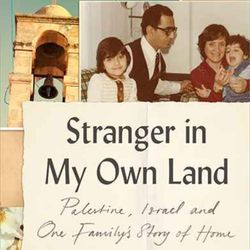
120. Stranger in My Own Land with Fida Jiryis
01:13:32||Season 5, Ep. 120In this very moving and heartwarming interview I had the opportunity to discuss with Fida Jiyris her work, a beautifully written memoir that tells the story of her and her family journey, which is also the story of Palestine, from the Nakba to the present—a seventy-five-year tale of conflict, exodus, occupation, return and search for belonging, seen through the eyes of one writer and her family. Fida reveals how her father, Sabri, a PLO leader and advisor to Yasser Arafat, chose exile in 1970 because of his work. Her own childhood in Beirut was shaped by regional tensions, the Lebanese Civil War and the 1982 Israeli invasion, which led to her mother’s death. Thirteen years later, the family made an unexpected return to Fassouta, their village of origin in the Galilee. But Fida, twenty-two years old and full of love for her country, had no idea what she was getting into.Stranger in My Own Land chronicles a desperate, at times surreal, search for a homeland between the Galilee, the West Bank and the diaspora, asking difficult questions about what the right of return would mean for the millions of Palestinians waiting to come ‘home’.